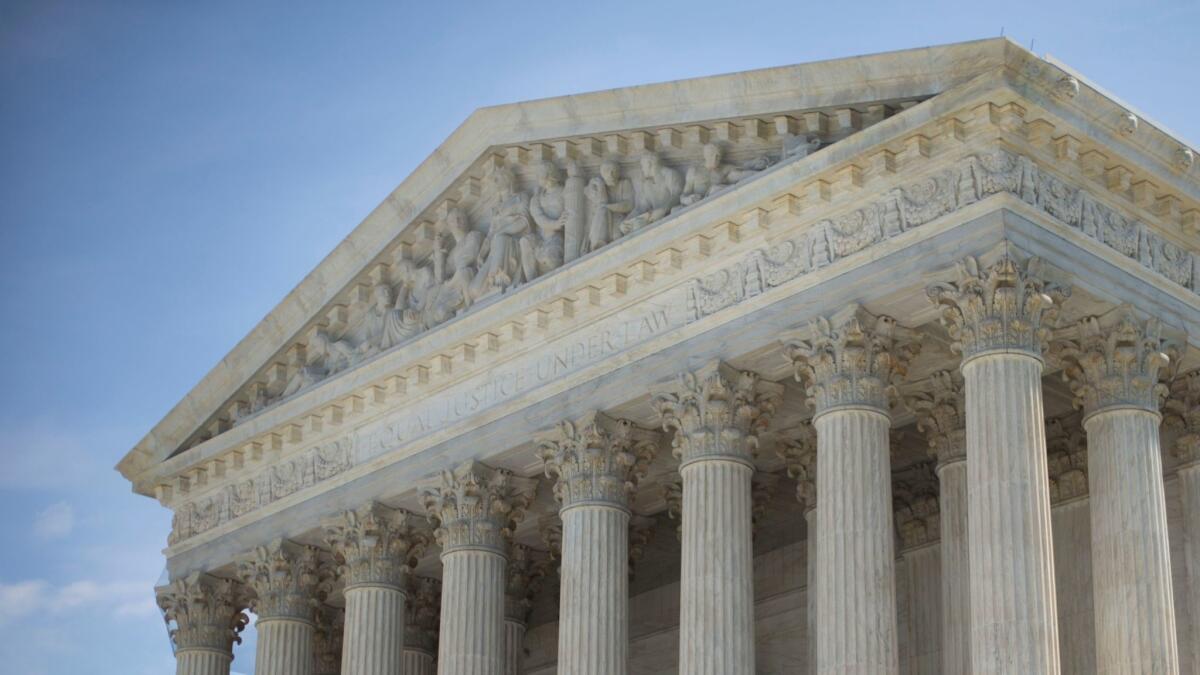Supreme Court upholds L.A. man’s bank fraud charge for siphoning money from a customer’s account

Reporting from Washington — Someone who steals money from a customer’s bank account can be prosecuted for defrauding the bank, the Supreme Court ruled Monday, largely rejecting an appeal from a Los Angeles man who siphoned off nearly $300,000 from the checking account of a Taiwanese businessman.
Lawrence Shaw was accused of intercepting mail from Bank of America that was intended for Stanley Hsu, the businessman. According to the court documents, Shaw schemed to steal money by opening a PayPal account in his name and then transferring money from that account to accounts of his own.
Trump’s victory assures a conservative majority on the Supreme Court. »
When the scheme was revealed, Shaw was prosecuted under a federal law that makes it a crime to “knowingly… scheme” to “defraud a financial institution,” and a jury in Los Angeles convicted him on 14 counts.
But he appealed on the grounds that the law did not apply because he did not intend to cheat the bank, only one of its customers.
The 9th Circuit Court rejected that claim last year, and the Supreme Court did the same Monday in a unanimous opinion.
Justice Stephen G. Breyer said the bank had a property interest in the money held in its accounts. “Thus, Shaw’s scheme to cheat Hsu was also a scheme to deprive the bank of certain bank property rights,” he said.
For the 4th time, the Electoral College picks the loser of the popular vote. »
Moreover, he said, the law does not require proof that the thief intended to steal from the bank or that the bank suffered actual losses.
Shaw’s public defenders had better luck with another argument: that one of the instructions to the jury could have been confusing. Without ruling on that claim, the justices asked the 9th Circuit to take another look at the issue.
On Twitter: DavidGSavage
ALSO:
Can Trump put another Justice Scalia on the Supreme Court?
More to Read
Inside the business of entertainment
The Wide Shot brings you news, analysis and insights on everything from streaming wars to production — and what it all means for the future.
You may occasionally receive promotional content from the Los Angeles Times.











